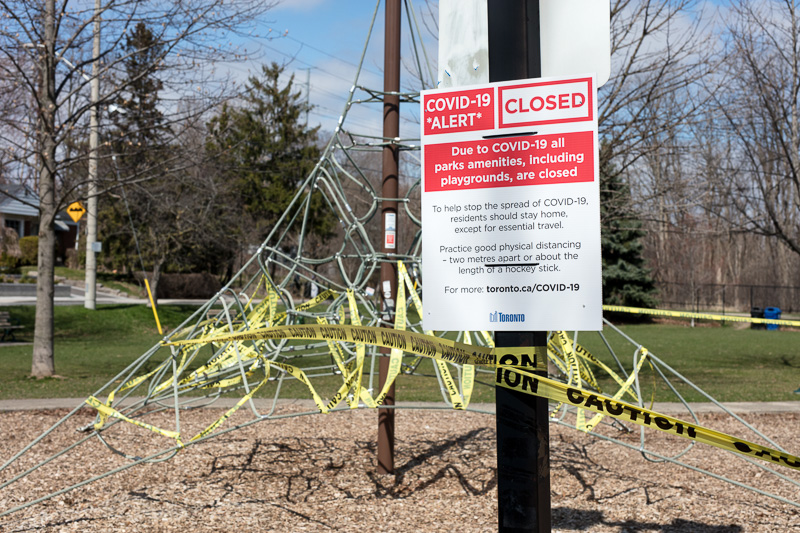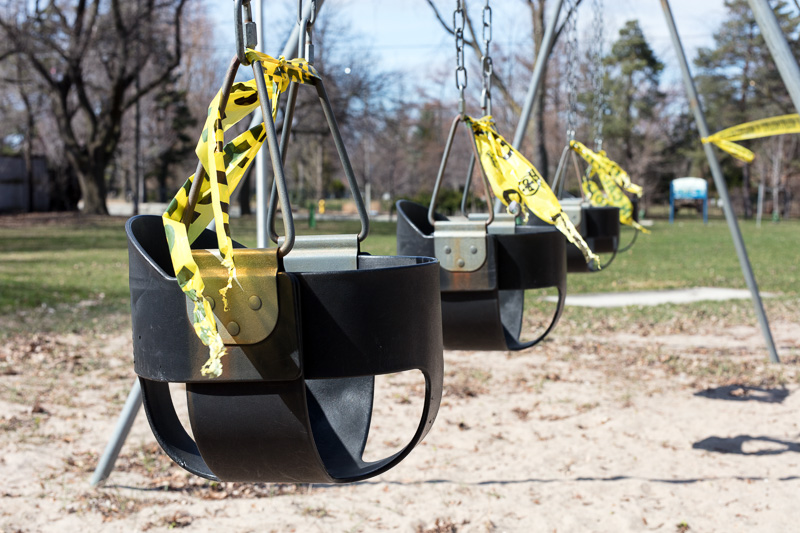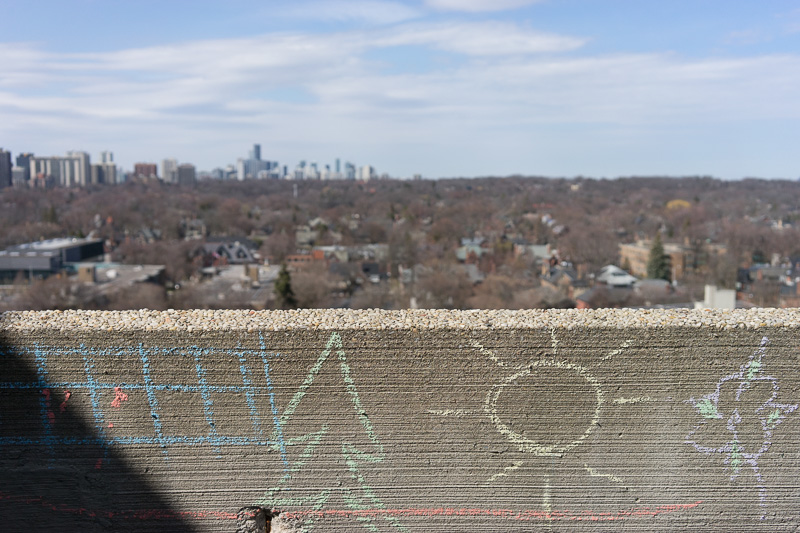
My wife and I follow a simple self-isolation regimen. A couple times a week, I drift back into my prefrontal cortex and revert to my most primitive hunter-gatherer impulses. Some people call this grocery shopping. We spend the rest of our time cooking, working, reading, watching TV, whatever it takes to navigate sanely from one day to the next. Every few days, especially for my wife, it feels like a pressure cooker about to blow. To relieve the pressure, we go outside for a walk, doing our best to keep our distance from other walkers. We keep our distance for two reasons. First, and most obviously, we want to limit the spread of Covid-19. Second, we make the assumption that, like us, others are walking to blow off steam; we don’t want to set them off or vice versa.
We took one of our walks on a sunny Sunday afternoon. On our way, we passed a couple children’s playgrounds: signs posted to warn of the Covid-19 danger, yellow tape to keep children off the structures. Despite the sunshine, there was a chilly wind. Like any spring, it was gritty underfoot. Street sweepers haven’t cleaned up all the grit laid down from the winter.

The scene reminded me of The Children of Men, the 1992 dystopian novel by P. D. James. I expect most people are familiar with the film adaptation. Although the film takes liberties with the novel’s story line, the underlying premise of both novel and film is the same: in 1995, the human species experiences a radical decline in fertility and can no longer reproduce. The novel opens on the first day of January, 2021. The last person to be born (in the Omega year – 1995) has been killed in a bar fight. There are no children left on the planet and, as people go about their daily lives, there is the tacit assumption that everything tends to extinction. Early in the novel, we have this passage:
In our universal bereavement, like grieving parents, we have put away all painful reminders of our loss. The children’s playgrounds in our parks have been dismantled. For the first twelve years after Omega the swings were looped up and secured, the slides and climbing frames left unpainted. Now they have finally gone and the asphalt playgrounds have been grassed over or sown with flowers like small mass graves.
For my wife and I, life no longer includes young children. Our children are adults who have not (yet?) found space in their lives for children. In ordinary times, there are lots of opportunities to interact with young children. But during this time of self-isolation, we see only the traces of children—playgrounds, lost toys, chalk drawings left to wash away in the rain.
I wonder how we will return to normal. Will we allow our children to play freely? Or will we regulate public play? Maybe the state won’t need to regulate childhood interactions. Maybe it will be enough for anxious parents to hover on the edges of our playgrounds:
“Six feet, Dick. Remember the six feet rule.”
“Fix your mask, Jane. I can see your nose.”
